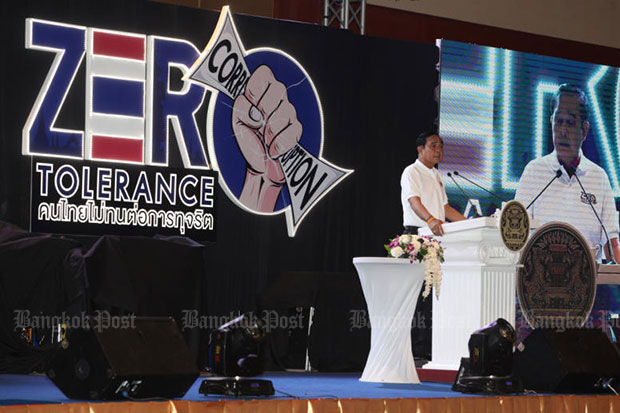
Almost half of the Thai population think the government will be unable to solve the corruption problem that has plagued government offices and the monastic circle - and another third are unsure - because the problem is so deep-rooted in Thai society, Suan Dusit Poll suggested on Sunday.
Asked which corruption cases have most alarmed them, 42.03% cited corruption in the school lunch programme; 40% the embezzlement of temple funds; 37% the embezzlement of funds for low-income earners; 21.06% government spending on various projects; and 20.68% corruption in various Education Ministry programmes.
Asked for the main causes of corruption, a majority of respondents - 68.35% - mentioned greed and selfishness; 28.42% loopholes in the audit system; 19.30% leniency in penalties on wrongdoers; 17.11% change in social values; and 14.83% a stagnant economy and low salaries.
Asked whether the government will be able to solve the corruption problem, almost half of respondents - 47.50% - said 'No', because corruption is so ingrained in Thai society; 32.54% were uncertain; and 19.96% said the government could tackle graft effectively if it's serious about it, because a number of corruption cases have been solved.
The poll was conducted on 1,122 people throughout the country on June 12-16.